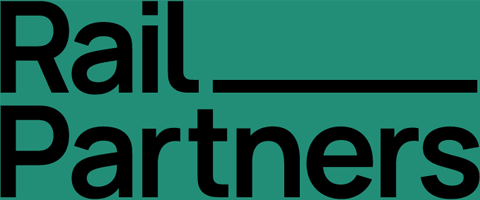
Rail Partners’ response to Royal Assent of the Passenger Railway Services (Public Ownership) Act and today’s ORR rail industry finance data
On Royal Assent of the Passenger Railway Services (Public Ownership) Act, Rail Partners chief executive, Andy Bagnall, said:
‘Royal Assent of the Passenger Railway Services (Public Ownership) Act is a watershed moment that means the Government has now assumed direct responsibility for improving Britain's railways, but simply changing who runs the trains won’t mean more reliable or affordable services for passengers.
‘This Act is political not practical. It is counter intuitive to remove the private sector from the railways when it is the only part of the system with a track record of delivering growth in passenger numbers to reduce subsidy – especially when answering the question of what will replace it is being parked until further rail legislation next year.’
On today’s ORR rail industry finance data, Rail Partners chief executive, Andy Bagnall, said:
‘Today’s rail industry finance data from the ORR shows that, although it is reducing, the subsidy the railway is receiving is still too high compared to pre-pandemic levels.
‘Before franchising was swept away by the pandemic, train companies paid billions of pounds into the Treasury. In removing the private sector from the railways, the Government is getting rid of the part of the system with a track record of delivering growth in passenger numbers to reduce subsidy at a time when rail finances are yet to recover from the pandemic.
‘They now need to set out an alternative of how they will deliver more reliable and affordable services for passengers and taxpayers.’
Notes to editors
- Royal Assent of the Passenger Railway Services (Public Ownership) Act took place today. This three clause Act has only one function which is to prohibit the contracting of private sector companies to deliver train operations. It does not create Great British Railways or deliver any of the other structural reforms that will help deliver the improvements which passengers want.
- ORR’s rail industry finance data can be viewed here: https://dataportal.orr.gov.uk/media/udsa42ql/rail-industry-finance-uk-statistical-release-202324.pdf
- Today’s industry finance data shows collectively private sector train companies have reduced subsidy by over a quarter (26%). By contrast, public sector train companies have increased their subsidy (by 0.45%) compared to last year – see table below, based on data that can be found here.
|
Train company |
Subsidy 22/23 (£m) |
Subsidy 23/24 (£m) |
Percentage change in subsidy (%) |
|
Avanti |
96.5 |
-67.2 |
-169.64% |
|
c2c |
67.6 |
59.2 |
-12.43% |
|
Chiltern |
21.6 |
38.9 |
80.09% |
|
CrossCountry |
176.6 |
72.1 |
-59.17% |
|
East Midlands Railway |
122.3 |
86.3 |
-29.44% |
|
Elizabeth Line |
175.3 |
91.0 |
-48.09% |
|
GTR |
313.6 |
226.8 |
-27.68% |
|
GWR |
445.2 |
336.3 |
-24.46% |
|
Greater Anglia |
-27.6 |
-57.8 |
-109.42% |
|
London Overground |
149.4 |
179.5 |
20.15% |
|
Merseyrail |
129.3 |
154.5 |
19.49% |
|
SWR |
180.6 |
154.7 |
-14.34% |
|
West Midlands Trains |
290.7 |
308.1 |
5.99% |
|
TOTAL CONTRACTED |
2141.1 |
1582.4 |
-26.09% (£558.7m reduction in subsidy) |
|
Caledonian Sleeper |
32.2 |
29.6 |
-8.07% |
|
LNER |
89.9 |
39.0 |
-56.62% |
|
Northern |
636.4 |
652.2 |
2.48% |
|
ScotRail |
736.6 |
773.1 |
4.96% |
|
Southeastern |
424.9 |
415.0 |
-2.33% |
|
TPE |
270.1 |
228.1 |
-15.55% |
|
TfW |
277.2 |
341.4 |
23.16% |
|
TOTAL PUBLIC |
2467.3 |
2478.4 |
0.45% (£11.1m increase in subsidy) |
- Private sector train companies have reduced subsidy by over £550 million. Fees currently paid to franchised operators are between £110 - 150 million a year.
